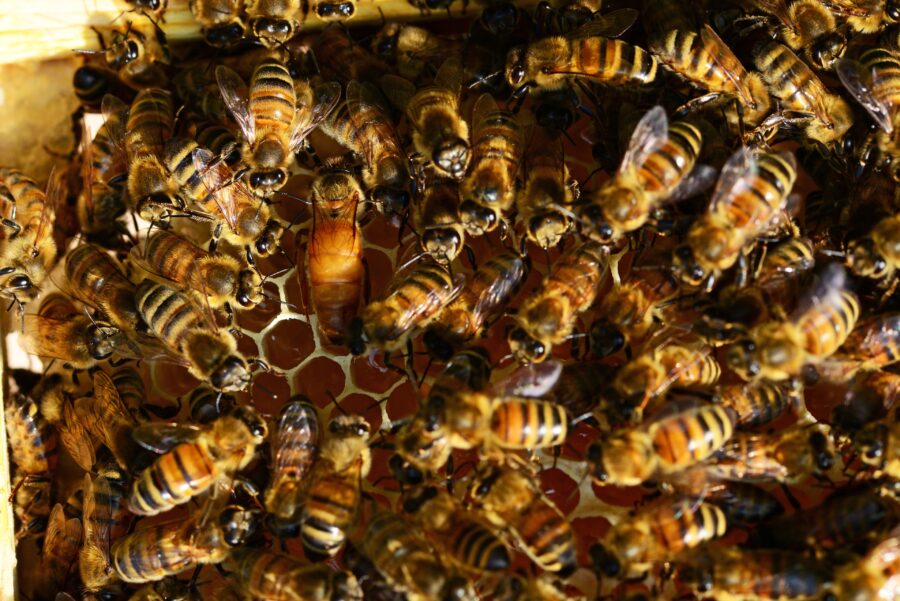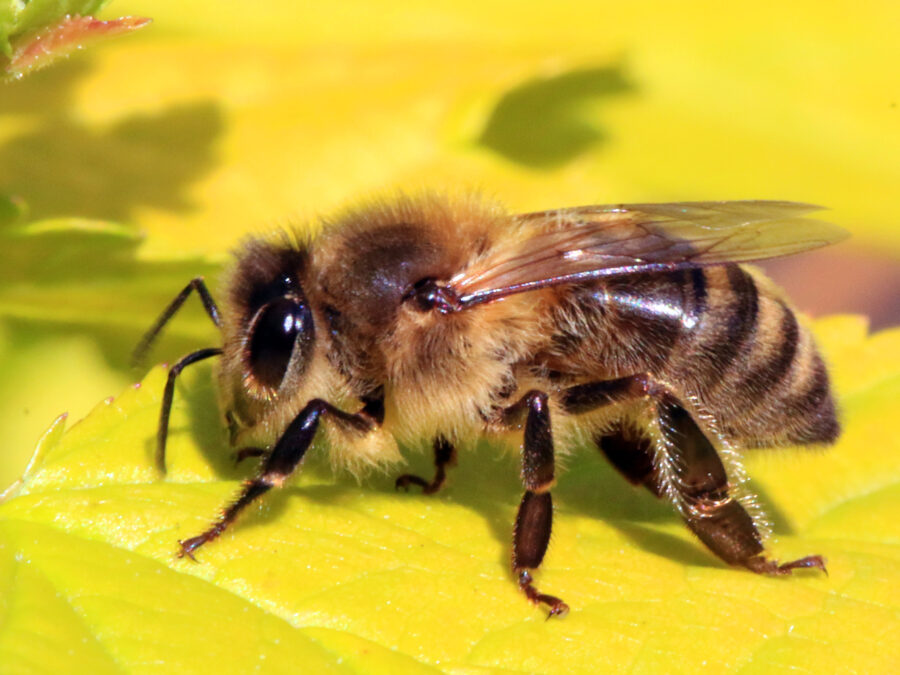Scientists Are Now Allowed To Vaccinate Bees
Dalan Animal Health has now developed a bee vaccine that prevents the insects from being ravaged by American foulbrood disease.
This article is more than 2 years old

The world’s first bee vaccine has been approved for use by the United States Department of Agriculture. Developed by biotech company Dalan Animal Health, the treatment will serve as a new weapon against American foulbrood disease that ravages colonies that humans rely on for food pollination. Usually, the only way to stop the illness from spreading is to incinerate infected bees and hives.
The bee vaccine comes in the form of dead bacteria that will be mixed into the food consumed by worker bees, IFL Science reports. The treatment is then digested and transferred to glands that produce royal jelly, a nutrient-rich secretion consumed by hive queens. Once the medicated jelly is ingested, fragments of the vaccine are transferred to the queen bee’s ovaries and developing eggs.
Developing larvae emerge from their eggs with disease immunity due to their exposure to the bee vaccine. There was no safe, sustainable solution for the prevention of American foulbrood disease before Dalan Animal Health developed a vaccination. Now that it’s been approved, commercial honeybee keepers can treat their hives.

Speaking about the bee vaccine, a board member of the California State Beekeepers Association and the owner of Tauzer Apiaries, Trevor Tauzer said this is an exciting step forward for beekeepers. “If we can prevent an infection in our hives, we can avoid costly treatments and focus our energy on other important elements of keeping our bees healthy,” he explained in a press release.
American Foulbrood disease can be catastrophic for honeybees that haven’t been treated with the new bee vaccine. The highly infectious disease is introduced to hives by drifting bees from nearby colonies. They sometimes carry spores of the bacteria, which can remain viable on equipment for years. The disease is also resilient against extreme weather conditions and chemicals that kill other bacteria, IFL Science reports.
Once it enters a hive, the disease destroys young larvae which are the most vulnerable to infection. The dead creatures then spurt out spores that spread throughout the hive and colony. As a result, the bees are severely weakened and the entire colonies can be completely wiped out. Fortunately, the bee vaccine is a breakthrough in protecting honeybees.
“We are ready to change how we care for insects, impacting food production on a global scale,” CEO of Dalan Animal Health, Doctor Annette Kleiser said in a statement. She added that with the aid of the bee vaccine, the company is committed to providing innovative solutions to protect pollinators and promote sustainable agriculture.
Since the bee vaccine is not genetically modified, it can be used in organic agriculture. As such, Doctor Kleiser noted that population growth and changing climates will increase the importance of honeybee pollination to secure the global food supply. The bacteria is developed by Dalan Animal Health and is manufactured by Diamond Animal Health, a wholly-owned subsidiary of Heska.
The United States Department of Agriculture has issued a conditional license for the bee vaccine for two years. Dalan Animal Health will handle limited distribution to commercial beekeepers and anticipates having the treatment available for purchase in the United States in 2023. The good bacteria can’t come soon enough as beekeepers lost approximately 40% of their colonies in 2019, a survey by the Bee Informed Partnership says.












